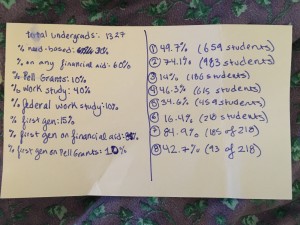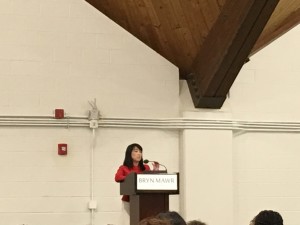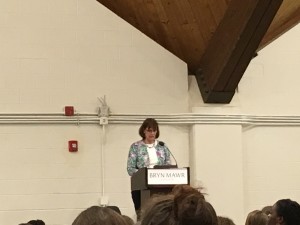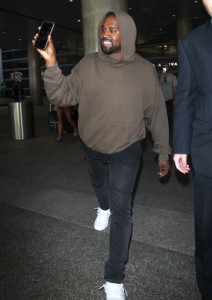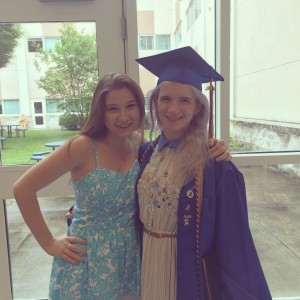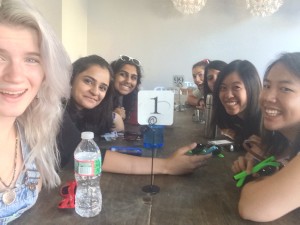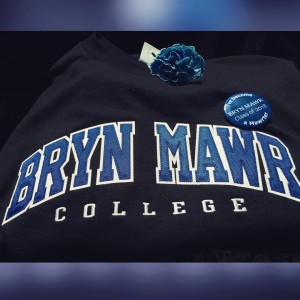Tuesday was Bryn Mawr’s second annual Community Day of Learning, an incredible event that exemplifies Bryn Mawr’s commitment to activism, education, and community. Between 9 AM and 3:30 PM, classes are cancelled, offices are closed, and even essential departments limit their availability in order to make the Day of Learning accessible to everyone. This year’s theme was In/Visible: Class on Campus, Class in Our Lives. There were about 45 different options spread out over three sessions, including workshops, facilitated dialogues, discussion and experience panels, research lectures, films, service projects, and more. All faculty, staff, and students were invited to attend, and from what I saw, the turnout was incredible. The eagerness of the community to address difficult conversations and experience unusual learning opportunities has been one of my favorite things about Bryn Mawr.
I woke up at 9:55 and leapt out of bed, realizing I’d accidentally slept through President Cassidy’s opening remarks. I raced over to Carpenter Library just in time for Debunking Bryn Mawr: Perceptions and Realities of the Student Body led by Emma Porter ’17, Kirsten Adams ’16, Aarionna Goodman ’19, and Dean Christina Rose. The presenters are all members of Bryn Mawr’s First Go-ers, meaning they are first generation college students. We began by guessing percentages: students on any financial aid, on need-based, federal, work-study, students who are first generation, first go-ers on aid, etc. We compared our numbers with our neighbors. My neighbors and I had some guesses in common, but mine were significantly lower in other areas–I guess I’ve been hearing rumors that the freshman class is richer than previous years and I felt a bit disillusioned about Bryn Mawr’s ability to provide scholarships and aid for a large percentage of its students. When the real percentages were revealed, there was a lot of gasping, even from the many attendees who work in admissions (yay need-blind applications!). For those who are curious, here are my guesses compared to the reality:
After the exercise, we broke into groups to discuss our results. A handful of people expressed shock at the number of first generation students on campus, saying they didn’t know any. I’ve been lucky enough to be close friends with quite a few first go-ers, so I hadn’t been too surprised by the numbers. I and a few other members of my group pointed out that a first generation college student isn’t exactly something clearly visible about a person. For example, neither Emma nor Kirsten look like the stereotypical first go-er people might have in their minds (feel free to google “first generation college student” to see how these stereotypes are expressed–I don’t feel comfortable reproducing them here). We also talked about our perceptions of other groups on campus. One student said that because she knew international applications were not need-blind, she’d been under the impression that international students never received aid from the college and were all wealthy. Looking at the percentage of students on aid, and knowing that international students make up about a third of the community, she realized she’d been misinformed–clearly, at least some international students were receiving aid. A financial aid officer in our group confirmed this realization, telling us that Bryn Mawr tries its best to provide aid to international students since they can’t receive federal grants, but that many international students opt to conceal their need on applications in hope of increasing their chances of getting accepted while their families, extended families, and even whole communities make sacrifices for them to afford the costs. All in all, it was an incredible eye-opening discussion, and the panelists closed the session with touching personal anecdotes about their own experiences with class markers as first generation students. Even Dean Rose shared a sympathetic story about not knowing what NPR was and not bringing a mini fridge to college.
After that session, I made my way over to Dalton for Different Closets: Complicating Narratives of Class and Queerness, which was hosted by Meera Jayaraman ’17, Maya Ulin-O’Keefe ’17, and Kelsey Weymouth-Little ’16. This panel began with a silent writing exercise in response to the question, “how do you think queerness is expressed in rural and/or working class communities?” As I began to write, I realized that the extent of my knowledge was drawn from a high school production of The Laramie Project and a brief obsession with Billy Elliot. I decided that this meant I was definitely in the right place–it is, after all, a day of learning. We then shared our thoughts in groups and I was surprised to learn that two of the students next to me were able to speak from personal experience–I’d made assumptions about their class backgrounds without even knowing them at all. This is what I love about the Day of Learning: I’m learning about myself and how I allow my privilege to go unchecked while learning about the lives of others.
When the session turned back into a group-wide discussion, there were a few poignant moments that really stood out. One woman shared that in that group conversation she’d just come to understand bisexuality and that the group had helped her on her path to fully understanding and supporting her daughter. Another spoke about bringing her gender non-conforming child to a counseling and support center for queer youth, a resource she wouldn’t have had access to if she had lived in a different community. We also talked about queer fashion expression (flannels, work boots) as appropriated from the working class and how the intersections of race and class might make that expression of queerness inaccessible for certain people. One of my favorite takeaways from the day was when someone in the group stressed the importance of calling people in to discussions rather than calling them out for using the wrong language or not understanding something–it’s important to remember that not everyone has had the same exposure to education about gender and sexuality (or other topics) and to treat everyone as though they have good intentions and the ability to learn. The next activity involved responding to quotes from Steel Closets by Anne Balay and Exile and Pride by Eli Clare. I was impressed by the range of ways people interacted with the quotes and wished there was enough time to delver deeper than an introduction.
I chose lunch over attending a third session, and all too soon, the Community Day of Learning had ended. Well, almost. The keynote speaker was local councilwoman and activist Helen Gym, a passionate proponent of education reform and Asian-American rights in Philly. She spoke about the deplorable conditions of Philadelphia’s public schools, many of which are suffering from the city’s rampant poverty, and how the schools are failing children from low-income backgrounds on many levels. Her remarks were a powerful call to consciousness and action, and her energy drew an emotional response from the crowd. After filling out a few reflection questions and talking to nearby friends about their days, I trudged uphill through the rain to get back to campus. Though the day had given me a lot to think about, the main thing on my mind was: I can’t wait to see what they do next year.

